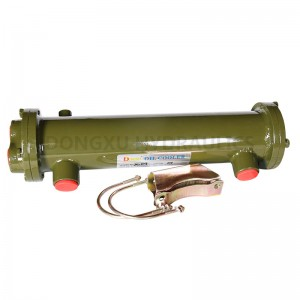Oil heat exchangers are an important component in many industrial processes and systems, providing efficient heat transfer between two or more fluids at different temperatures. They are used in a wide range of applications including power plants, chemical processing plants, refineries, HVAC systems and refrigeration units.
The numerous advantages of oil heat exchangers make them an integral part of many industries. One of the main benefits is energy efficiency. Oil heat exchangers can recover and reuse heat that would otherwise be wasted, resulting in significant savings in energy consumption and costs.
In addition, oil heat exchangers increase safety by isolating different fluids from each other, preventing contamination risks. This is particularly important in applications where the fluids involved may be harmful or pose a health risk.
Oil heat exchangers can also contribute to environmental sustainability by reducing greenhouse gas emissions. By maximizing heat transfer efficiency, less fuel is required to reach the desired temperature, reducing CO2 and other harmful emissions.
Another advantage of oil heat exchangers is their versatility. They can be custom-designed to meet specific requirements, such as space constraints or the need to handle different types of fluids. This adaptability makes them suitable for a wide range of applications in various industries.
Additionally, oil heat exchangers are known for their durability and long service life. If properly maintained, they can operate seamlessly for many years, making them a cost-effective investment.
The characteristics of the oil heat exchanger also play a vital role in its effectiveness. The design and materials used in construction greatly influence their performance. Factors such as surface area, flow rate, and heat transfer coefficient affect heat exchange efficiency. In addition, material selection must consider factors such as corrosion resistance and thermal conductivity.
Different types of oil heat exchangers, including shell and tube, plate and air-cooled, have unique characteristics suitable for specific applications. For example, shell and tube heat exchangers are known for their high heat transfer efficiency, while plate heat exchangers are compact and lightweight.
All in all, the versatility of oil heat exchangers allows them to play a vital role in a variety of industrial processes and systems, aiding in heat recovery and helping to save costs and reduce environmental impact.
Post time: Oct-13-2023
